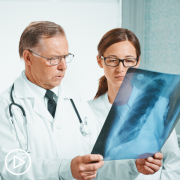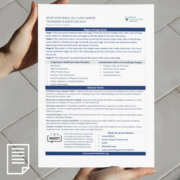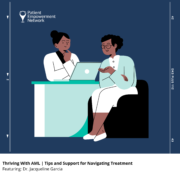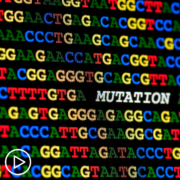Methods to Improve Lung Cancer Physician-Patient Communication
Methods to Improve Lung Cancer Physician-Patient Communication from Patient Empowerment Network on Vimeo.
What are some ways to improve lung cancer physician-patient communication? Experts Dr. Lyudmila Bazhenova and Dr. Jessica Bauman share methods they’ve used and potential ideas for future studies to improve care.
See More from Lung Cancer | Empowering Providers to Empower Patients
Related Resources:
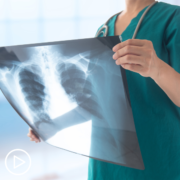
How Can Lung Cancer Experts in Academic and Community Settings Collaborate |

How Can Lung Cancer Physician-Patient Communication Be Improved |
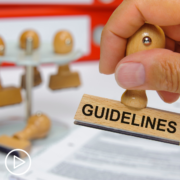
|
Transcript:
Dr. Nicole Rochester:
I wonder if either of you or both of you have any thoughts around unique things that you’ve implemented that have allowed you to really connect and communicate with your patients in spite of these time limitations. Are there any unique things that you all have implemented in real time, like face-to-face, when communicating with patients?
Dr. Jessica Bauman:
So I would say we did a pilot study that has not been implemented full time, and really I think we’re still working on how to best implement something like this but we did a pilot study using sort of educational materials, and this whole sort of pathway and educational system in coordination with our nurse navigators, where you could send sort of a prescription to the patient of reading material or of educational material, as they’re going along. And so, with the idea that early on that one of those prescriptions would be more information about molecular testing and biomarker testing, decision-making, all of those types of things.
We did a small pilot study to incorporate that, which on the surface is fantastic but it was surprisingly challenging to do, to actually implement. And I think that was…we were doing this, again, in collaboration with one of the researchers, the nurse researchers at our institution, and we hit more barriers than expected, because I think we all, as you say, we all want to educate, we all want to make sure that our patients understand and get the information that they need, but the practicality of doing that really successfully and in a streamlined way but that’s also consistent across providers across the institution, it’s a challenge.
Dr. Nicole Rochester:
Yeah, I can imagine. Are there a chance to extend the pilot or to maybe modify it based on what you all learn from the initial study?
Dr. Jessica Bauman:
I think that that’s…it’s certainly in discussion about how to best implement something like this. Part of that is…again, sort of systems change. The role of the clinic nurse, the nurse navigators has changed a little bit and so even how we envision implementation is going to need to shift somewhat.
Dr. Nicole Rochester:
Wonderful. What about you, Dr. Bazhenova? Any pilot studies or any other maybe tips and tricks that you employ independently?
Dr. Lyudmila Bazhenova:
Yeah, we haven’t had any pilot studies but I think the more I think about it…so the challenge of discussing those molecular testing with the patients is the fact that majority of those molecular testing discussions happen in stage IV patients and majority of those discussions happen during the first visit for a patient with stage IV lung cancer where we just discussed that this is an incurable cancer with limited life expectancy. And then how much does our patient actually absorb anything else we said afterwards is still remain to be seen. And I actually have seen like when I talk to the patient because they are so understandably fixated on their prognosis and survival, because it’s going to affect their lives that after that my patient asked me a question that I know I’ve discussed it already because I have my spiel.
I tell the same thing to everybody. And I think now kind of thinking about it out loud after that, during that discussion and maybe we could set up another appointment with a nurse practitioner afterwards, that after the patient kind of already digested all that information, to go over again the management of the molecular abnormalities. And one thing I actually want to highlight and build upon something that Bauman said before, that in those patients we actually usually wait for the molecular testing to come back before we start their therapy. And it is much easier to just prescribe chemotherapy immunotherapy for those patients.
But then you’re going to run into issues of toxicity because if you gave immunotherapy before you give for example EGFR TKI and some ALK TKIs, you can actually going to run into toxicity and you can permanently prevent your patients from continue on tyrosine kinase inhibitors. And so that’s why this is an information that not all oncologists, especially those who practice in a tobacco belt where they don’t see a lot of oncogenic-driven patients, they might not be aware of that. And I think how do we pass that information to the physicians, and also how do we pass that information to the patients that there is an easy way, but easy way in this situation is not the right way.


